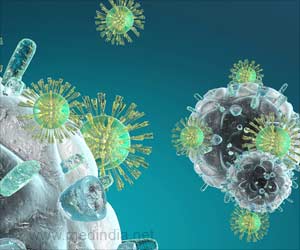Pancreatic cancer is a deadly disease that affects about 60,000 Americans every year. Pancreatic cancer occurs when the cells of the pancreas, an organ present in the abdomen produces a hormone called insulin that controls blood sugar levels. Smoking, drinking, age, diabetes, and obesity are the main risk factors. The mutation is the main cause of cancer where the cells grow uncontrollably.
‘The combination of three drugs boosts the T-cell response and attacks the pancreatic tumor cells.’
Immune Response
The T-cells (T-helper cells) recognize and destroy the cells that produce cancerous proteins. Still most of the tumor cells create a high immune responsive environment and disable the T-cells, thereby allowing the tumor to grow.
Many therapies like immune checkpoint therapy are used to treat cancer but this method works for pancreatic cancer because the tumors do not express the cancerous proteins called neoantigens. The T-cells cannot identify and destroy the tumor cells.
Recently researchers have found that a protein called CD155 is expressed by pancreatic cancer cells, and activates TIGIT – a receptor of the T-cells. This receptor makes the T-cell reach a point of exhaustion and cannot attack the pancreatic cancer cells.
To overcome this, researchers have found the combination of three drugs that rejuvenate the exhausted T-cells and stimulates the attack on the pancreatic tumor cells. The drug is a combination of CD40 agonist with PD-1 inhibitor and TIGIT inhibitor; it activates the T-cells and kills the tumor cells. None of the drugs are FDA approved, but they have reached the 2nd phase of clinical trials. A triple combination clinical trial is expected to begin later this year.
This was conducted on mice in the laboratory and dugs had shrunk about 25 percent of the tumor in mice. Researchers are planning for further animal studies to see if they can boost the effectiveness of the treatment beyond 50%.Clinical trials should be done to see the effect on human beings.
“We don’t have a lot of good options for treating pancreatic cancer. It’s a devastating disease clinically,” says William Freed-Pastor, a senior postdoc at MIT’s Koch Institute for Integrative Cancer Research. “If this approach led to durable responses in patients, it would make a big impact in at least a subset of patients’ lives, but we need to see how it will actually perform in trials.”
Source: Medindia



